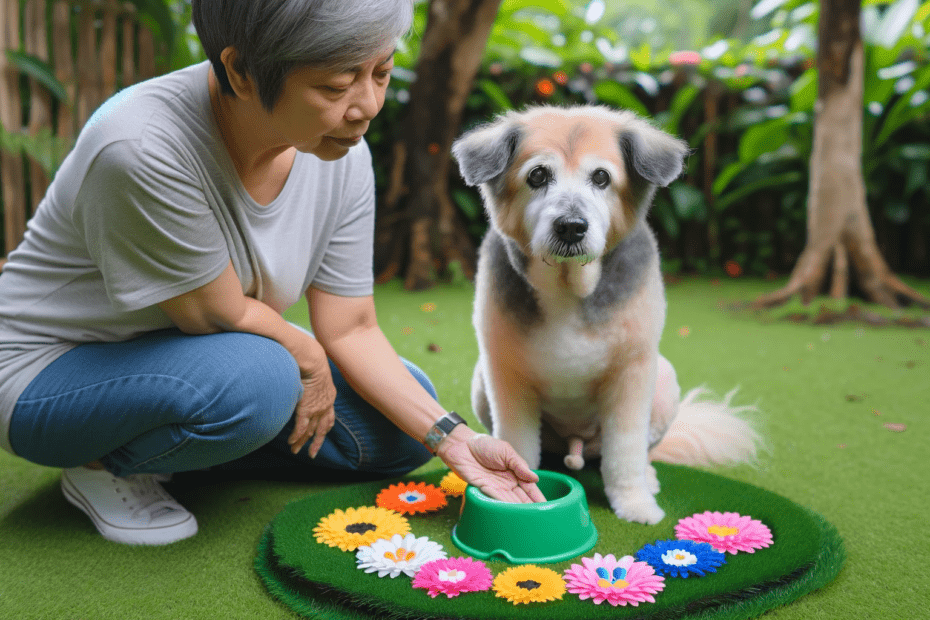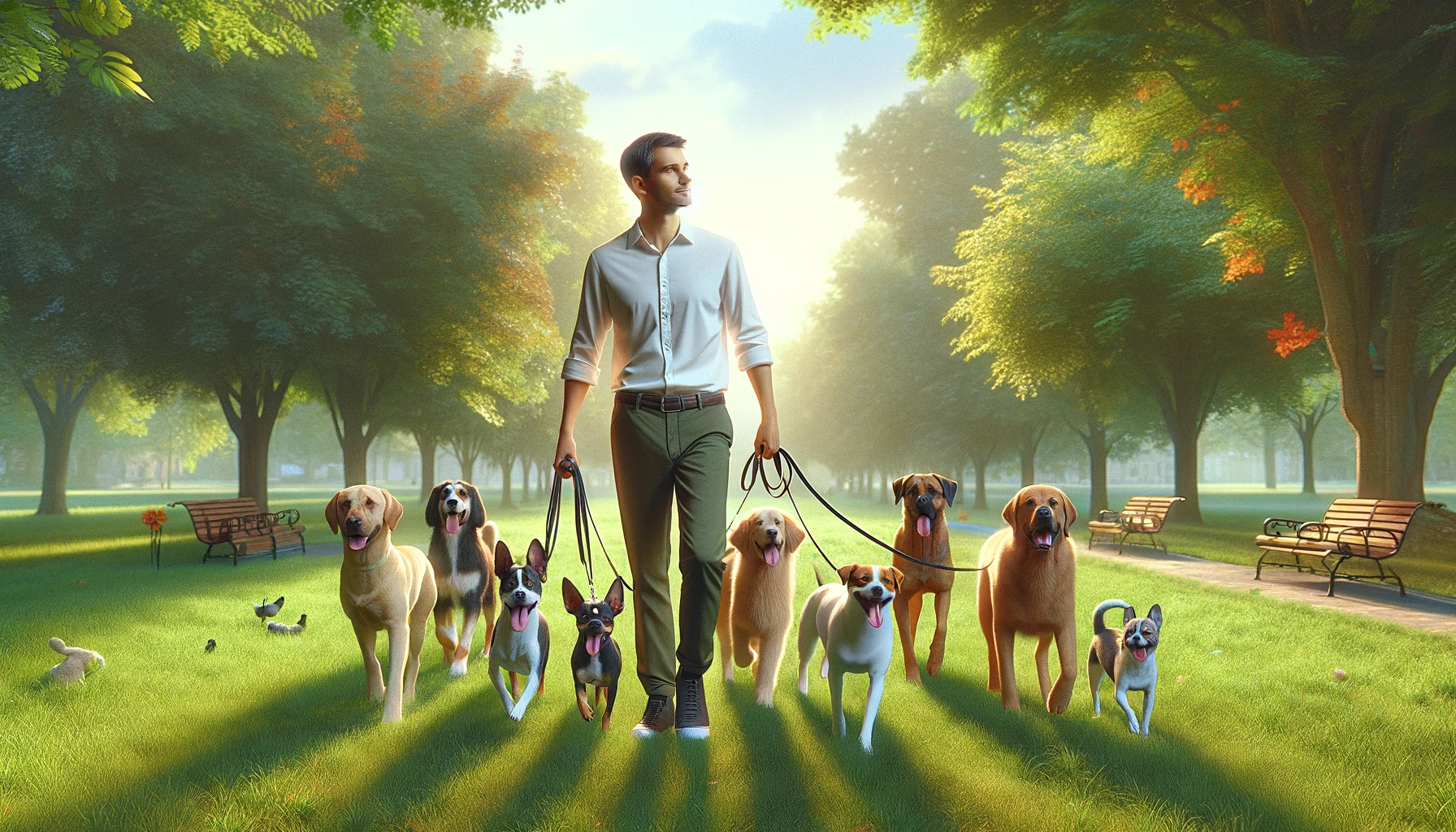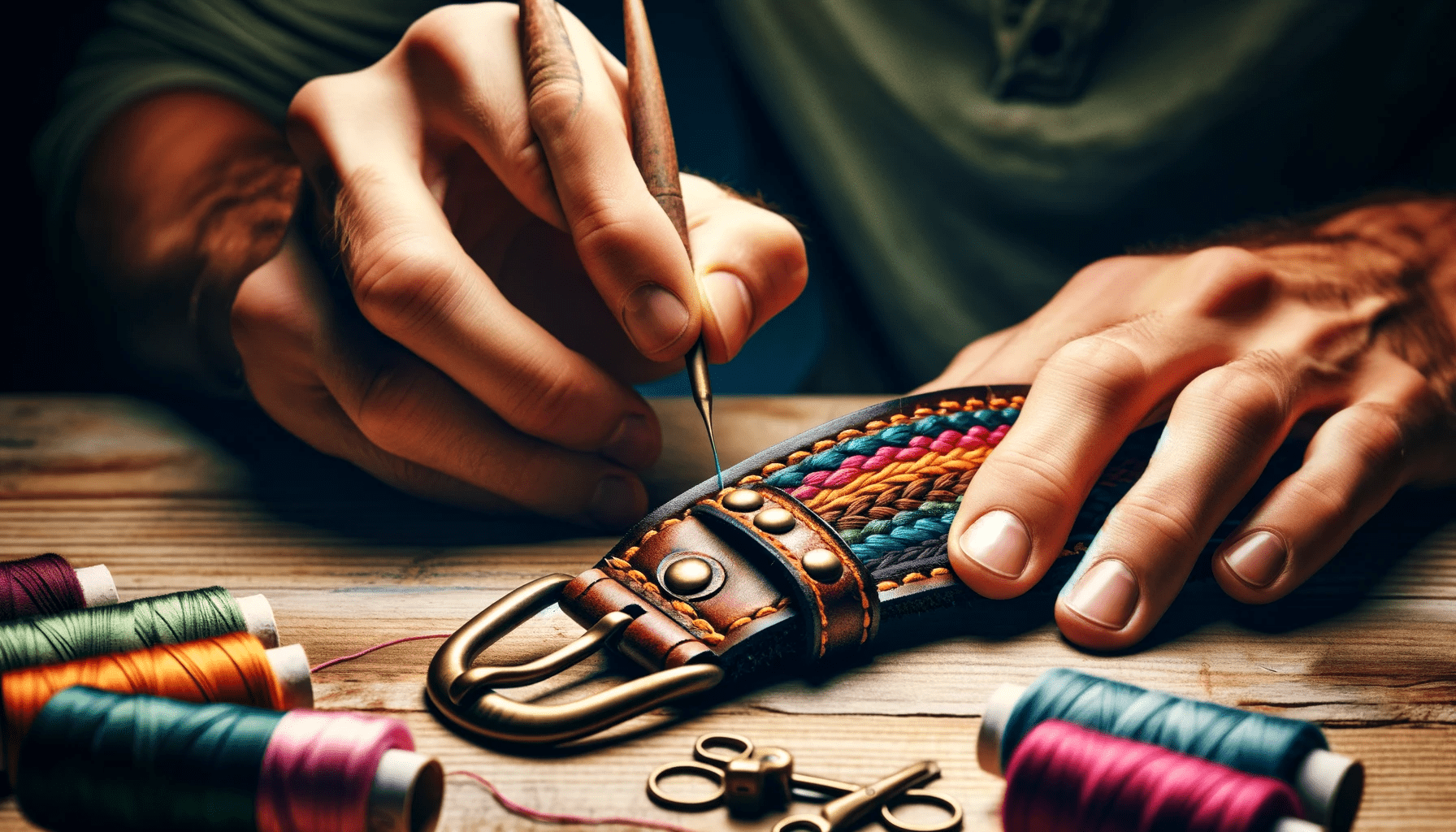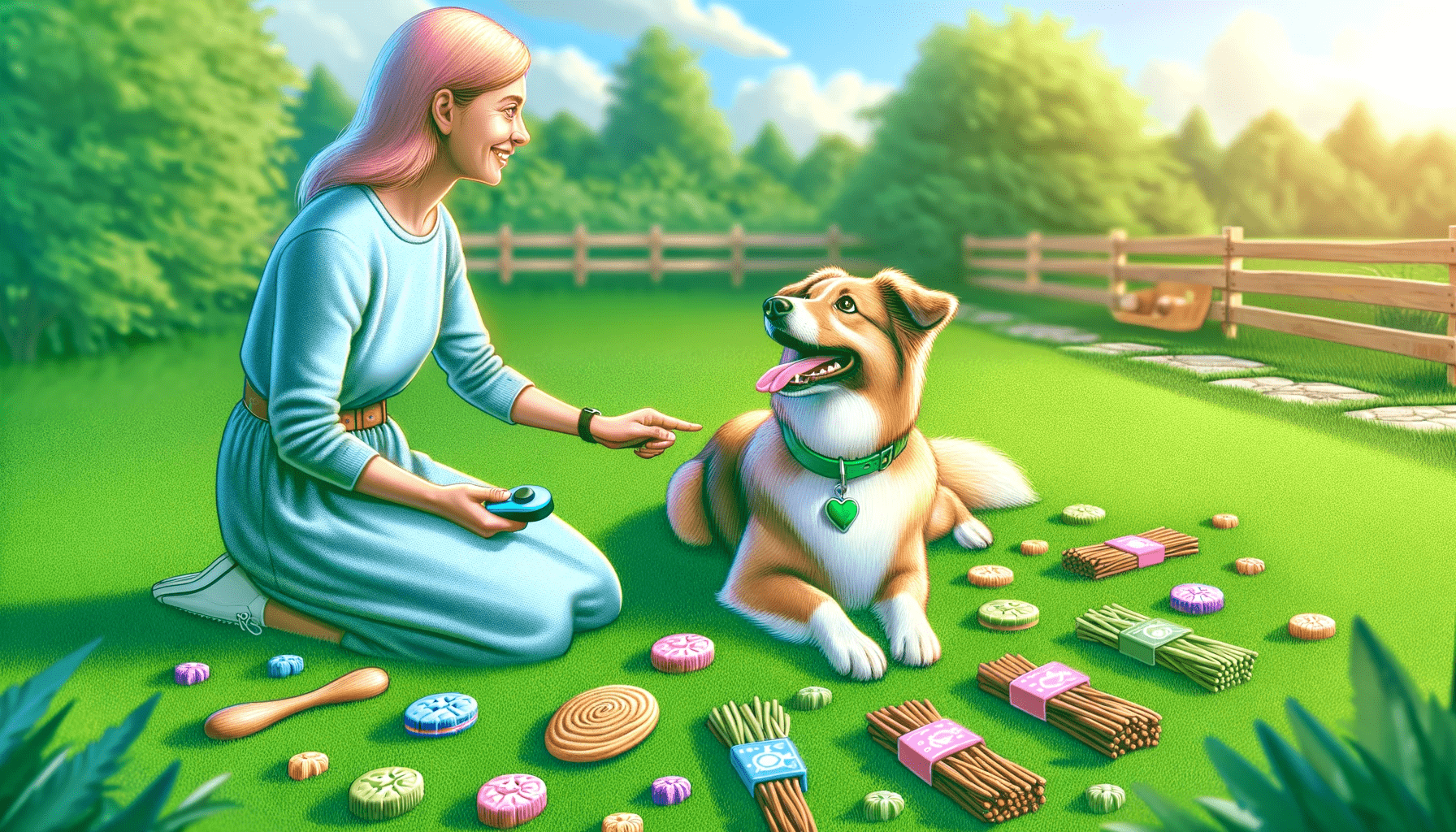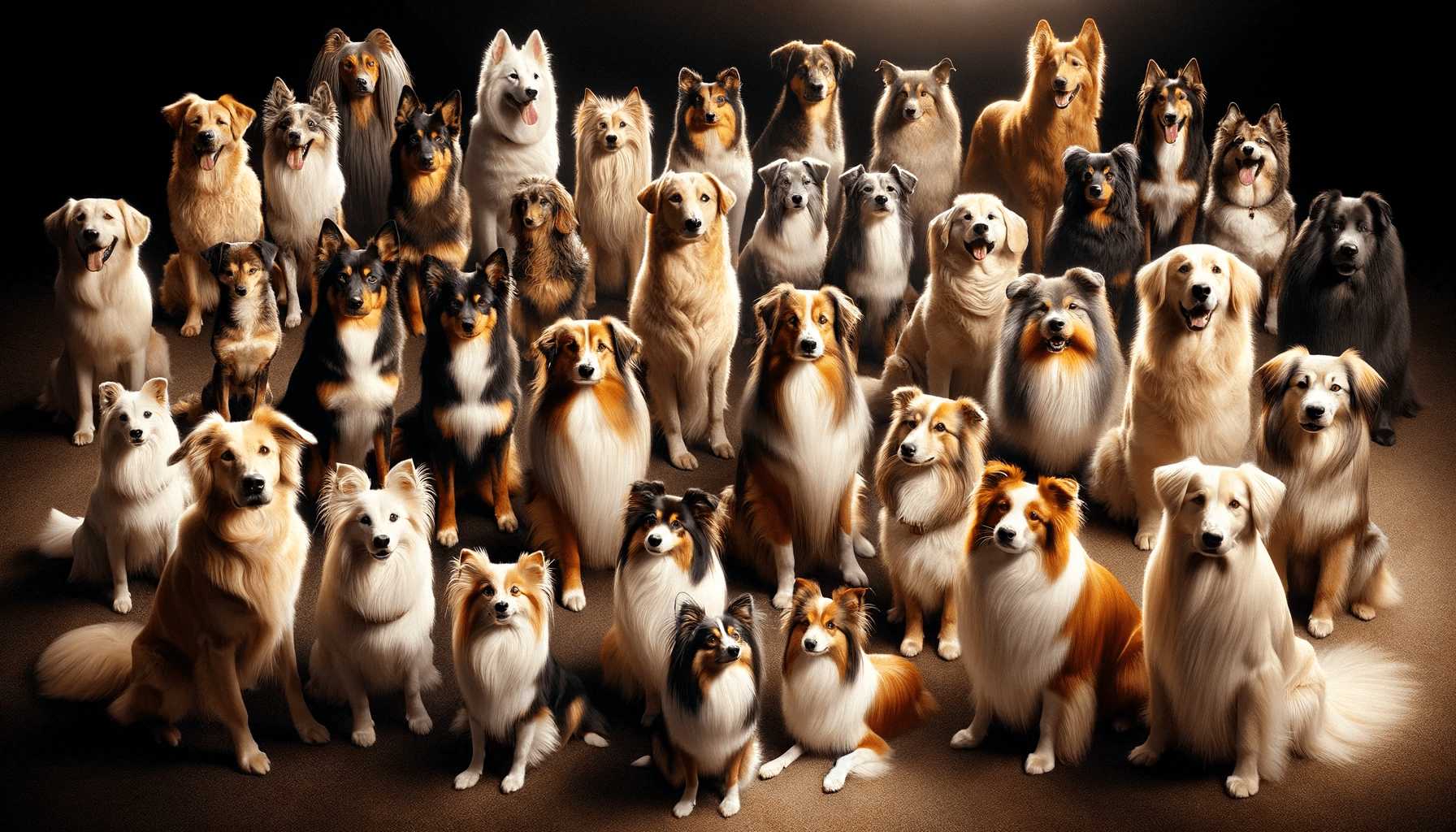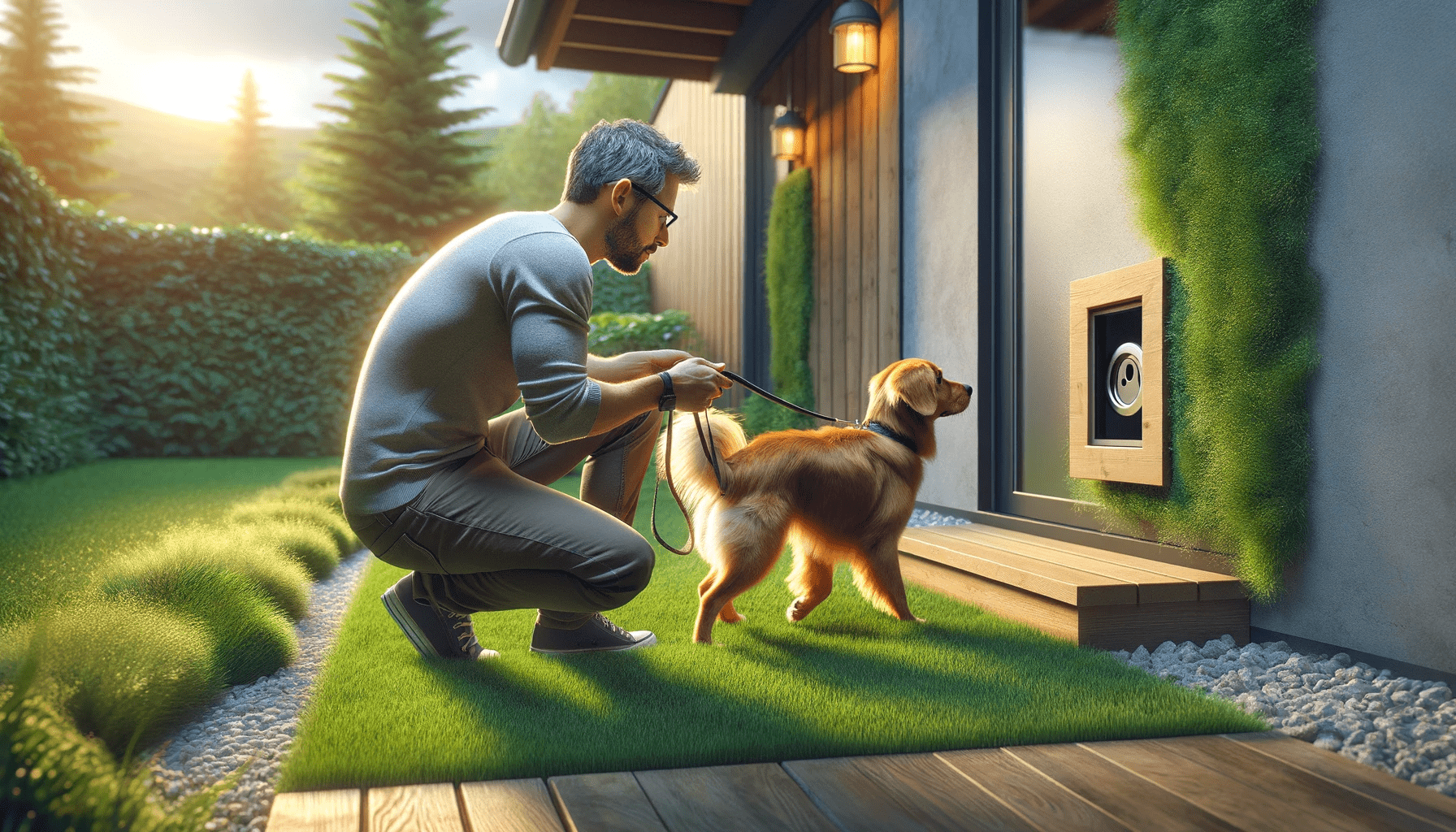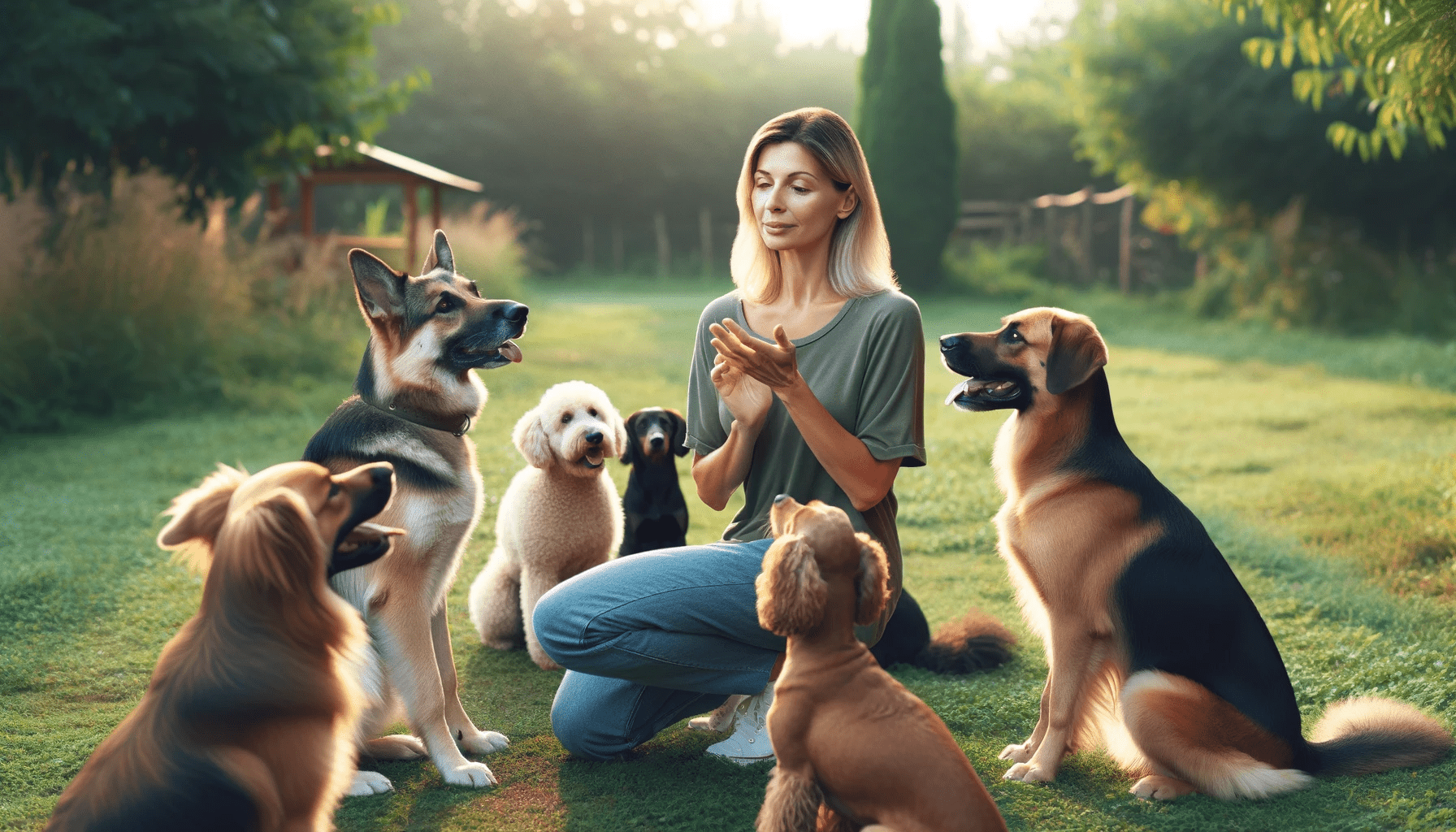Are you struggling to teach your older dog proper potty habits? Don't worry, you're not alone.
In 2023, the trend of teaching older dogs how to use the bathroom correctly is gaining momentum. This article will provide you with valuable insights and techniques to tackle this challenge.
From understanding the difficulties of potty training to establishing a consistent routine, we'll guide you through the process step by step.
Get ready to transform your furry friend into a potty-trained pro!
Key Takeaways
- Establishing boundaries and consistency in routine are essential for teaching older dogs proper potty habits.
- Using rewards and positive reinforcement techniques can motivate older dogs to develop and maintain good potty habits.
- Timing, repetition, and a designated potty area help older dogs understand when and where to go potty.
- Patience, persistence, and crate training can be effective in preventing accidents and reinforcing positive behavior.
Understanding the Challenges of Potty Training
To effectively potty train an older dog, you must first understand the challenges associated with this process. One of the key challenges is establishing boundaries. Older dogs may have become accustomed to going potty wherever they please, so it's important to teach them where it's appropriate to do so. By setting clear boundaries and consistently reinforcing them, you can help your dog understand where they should go potty.
Crate training can also be a useful tool in potty training older dogs. Dogs naturally try to avoid soiling their sleeping area, so by using a crate, you create a space where your dog will be less likely to have accidents. Make sure the crate is the appropriate size for your dog, as a crate that's too big may encourage them to use one corner as a bathroom.
Additionally, crate training can help you establish a routine for potty breaks. Dogs thrive on routine, so by taking them out at the same times each day, you can help them develop a regular bathroom schedule. Be patient and consistent with this process, as it may take some time for your older dog to adjust to the new routine and understand where they should go potty.
With patience and persistence, you can successfully potty train your older dog and help them develop proper potty habits.
Establishing a Consistent Routine
To establish a consistent routine for potty training your older dog, timing and repetition are key.
Take your dog outside to the designated potty area at regular intervals throughout the day, such as after meals, upon waking up, and before bedtime.
Additionally, rewards for consistency can help reinforce positive behavior and motivate your dog to continue practicing good potty habits.
Remember to be patient and use positive reinforcement techniques to encourage and reward your dog's progress.
Timing and Repetition
Establish a consistent routine by setting specific times for bathroom breaks and repeating them consistently throughout the day. This will help your older dog understand when it's time to go potty and reduce accidents indoors. Here are three effective techniques to help you establish a routine:
- Create a schedule: Set specific times for bathroom breaks, such as first thing in the morning, after meals, and before bedtime. Stick to this schedule as closely as possible to reinforce the routine.
- Use verbal cues: Teach your dog a specific command or phrase, such as 'go potty,' to signal the desired behavior. Repeat this cue every time you take your dog outside to go to the bathroom, helping them associate the cue with the action.
- Reward consistency: When your dog successfully goes potty outside at the designated times, reward them with praise, treats, or playtime. This positive reinforcement will motivate your dog to continue following the routine.
Rewards for Consistency
Reward your older dog's consistent potty habits to reinforce their positive behavior and motivate them to continue following the established routine. Consistency rewards play a vital role in training your older dog to develop proper potty habits.
When your dog successfully goes potty in the designated area, immediately reward them with praise, treats, or a favorite toy. This positive reinforcement helps your dog associate going potty in the right place with receiving something enjoyable. Be consistent in providing rewards every time your dog follows the routine to strengthen the connection between the desired behavior and the positive outcome.
Over time, your dog will be more motivated to continue following the established potty routine, resulting in fewer accidents in the house. Remember, consistency and rewards are key training techniques for teaching your older dog proper potty habits.
Patience and Positive Reinforcement
Be patient and consistently reinforce positive behavior when establishing a routine for teaching your older dog proper potty habits. It's important to understand that accidents may happen during the training process, but managing them with patience is crucial.
Here are a few tips to help you with this process:
- Implement crate training techniques: Using a crate can be an effective tool for teaching your dog to hold their bladder and establish a routine. Make sure the crate is the right size for your dog and provide comfortable bedding.
- Set a consistent schedule: Establish a regular routine for bathroom breaks, feeding times, and exercise. Consistency will help your older dog understand when and where they should go potty.
- Use positive reinforcement: Reward your dog with praise, treats, or a favorite toy when they go potty in the designated area. Positive reinforcement will motivate them to continue the desired behavior.
Using Positive Reinforcement Techniques
To effectively teach older dogs proper potty habits, utilize consistent and specific positive reinforcement techniques.
Positive reinforcement involves rewarding your dog for exhibiting desired behaviors, such as using the designated potty area. This method is highly effective in teaching older dogs new habits.
One popular positive reinforcement technique is the crate training method. This involves confining your dog to a crate when you're unable to supervise them. Dogs naturally avoid soiling their immediate living area, so the crate becomes a valuable tool in teaching them to hold their bladder and bowels. Make sure the crate is appropriately sized, comfortable, and contains toys or treats to keep your dog occupied.
Another positive reinforcement technique is utilizing scent-based training techniques. Dogs have a keen sense of smell, and certain scents can attract them to specific areas. By using a designated potty area and adding a scent attractant, such as a specific type of grass or a pheromone spray, you can encourage your older dog to use that spot for elimination. Consistently rewarding your dog with treats or praise when they use the potty area will reinforce the behavior.
Identifying and Addressing Medical Issues
Now it's time to address the importance of identifying and addressing any underlying medical issues that may be causing your older dog's accidents.
Medical causes for accidents can include urinary tract infections, bladder stones, diabetes, hormonal imbalances, or even cognitive decline.
It's crucial to consult with your veterinarian to determine the root cause of the problem and develop an appropriate treatment plan to alleviate your dog's discomfort and prevent future accidents.
Medical Causes for Accidents
Identify and address medical issues that may cause accidents in older dogs.
When it comes to accidents in older dogs, it's important to consider potential medical causes. Here are some common medical issues that can lead to accidents and how to address them:
- Urinary tract infections (UTIs): UTIs can cause frequent urination and accidents. A veterinarian can diagnose a UTI through a urine sample and prescribe appropriate medical treatments, such as antibiotics.
- Hormonal imbalances: Hormonal imbalances, like an underactive thyroid or Cushing's disease, can affect a dog's bladder control. A vet can perform blood tests to detect these conditions and provide appropriate medical treatments.
- Incontinence: Age-related incontinence is common in older dogs. Medications, such as hormone replacement therapy or muscle relaxants, can help manage this issue.
If you notice your older dog having accidents, consult with a veterinarian to rule out any medical causes. Once the underlying issue is addressed, behavioral modifications can be implemented to reinforce proper potty habits.
Treating Underlying Health Conditions
If your older dog is experiencing accidents, it's important to continue addressing and treating any underlying health conditions that may be contributing to this issue. Treating behavioral issues and adjusting their diet can play a crucial role in improving their potty habits.
It's advisable to consult with a veterinarian to rule out any medical conditions that may be causing your dog's accidents. They'll be able to conduct a thorough examination and recommend appropriate treatments. In some cases, certain medical conditions such as urinary tract infections or diabetes can lead to frequent accidents.
By identifying and addressing these underlying health conditions, you can significantly improve your dog's potty training progress. Additionally, adjusting their diet can also help regulate their bowel movements and reduce the likelihood of accidents.
Dealing With Separation Anxiety and Accidents
To effectively address separation anxiety and accidents in older dogs, it is important to establish a consistent routine and provide ample opportunities for outdoor bathroom breaks.
Separation anxiety management is crucial in helping your older dog overcome their fear of being alone and reduce the likelihood of accidents occurring. Here are some tips to help you deal with separation anxiety and prevent accidents at night:
- Gradual desensitization: Start by leaving your dog alone for short periods and gradually increase the duration over time. This helps them adjust to being alone and reduces anxiety.
- Provide mental and physical stimulation: Engage your dog in activities that keep them mentally and physically active. This can include puzzle toys, interactive games, and regular exercise. A tired dog is less likely to experience anxiety.
- Use positive reinforcement: Reward your dog for calm behavior when you leave and return home. This helps them associate your departure and arrival with positive experiences and reduces anxiety.
Creating a Designated Potty Area
To ensure consistent potty habits in older dogs, it's important to establish a designated area for them to relieve themselves. This is especially crucial when dealing with separation anxiety and accidents. One effective way to create a designated potty area is by using dog potty pads.
These pads are designed to absorb urine and control odors, making them a convenient option for indoor use. Simply place the potty pads in a specific location in your home and encourage your dog to use them when they need to go. Consistency is key here – make sure to always place the pads in the same spot and reward your dog when they use them correctly.
If you prefer to train your older dog to go potty outside, outdoor potty training is an option. Choose a specific area in your yard where you want your dog to do their business. Take your dog to that spot consistently and use verbal cues or commands to encourage them to go. Reward your dog with treats and praise when they successfully relieve themselves in the designated area.
Managing Indoor Accidents and Clean-up
When accidents happen indoors, promptly clean up the mess to prevent further incidents. Managing accidents and ensuring a clean environment is crucial in teaching older dogs proper potty habits. Here are some effective ways to manage indoor accidents and handle clean-up:
- Act immediately: As soon as you notice an accident, take action right away. The longer you wait, the harder it will be to eliminate the odor and prevent your dog from repeating the behavior.
- Use an enzymatic cleaner: Ordinary household cleaners may not completely remove the scent of urine, which can attract your dog back to the same spot. Enzymatic cleaners break down the odor-causing molecules, eliminating the scent and discouraging your dog from returning to that area.
- Establish a consistent cleaning routine: Create a regular schedule for cleaning accidents. This will help maintain cleanliness and prevent the spread of germs. By consistently cleaning up after accidents, you reinforce the message that indoor elimination is unacceptable.
Seeking Professional Help and Support
If you're struggling to teach your older dog proper potty habits, seeking professional guidance and support can greatly assist you in overcoming these challenges. Sometimes, despite our best efforts, our furry friends need a little extra help to learn good bathroom habits. That's where professional trainers and behaviorists come in. They've the knowledge and experience to identify the underlying issues causing your dog's potty problems and can provide you with effective strategies to address them.
Professional guidance is essential because it allows you to tap into the expertise of those who've dealt with similar situations before. These professionals can assess your dog's behavior and create a customized training plan tailored to your dog's specific needs. They can also offer valuable insight into your dog's body language and motivations, helping you better understand and communicate with your furry companion.
In addition to professional guidance, community support can be a valuable resource when it comes to teaching your older dog proper potty habits. Joining online forums or local dog training groups can provide you with a supportive community where you can share experiences, ask questions, and receive advice from fellow dog owners who've faced similar challenges. These communities can offer a wealth of knowledge and encouragement to keep you motivated and help you stay on track with your training efforts.
Frequently Asked Questions
How Long Does It Typically Take to Potty Train an Older Dog?
Typically, it takes time and patience to potty train an older dog. Overcoming common challenges, like accidents, can be done by using effective techniques. With consistency and positive reinforcement, you can train your dog quickly.
Can I Use the Same Potty Training Techniques for an Older Dog as I Would for a Puppy?
Yes, you can use the same potty training techniques for an older dog as you would for a puppy. Using positive reinforcement for potty training helps older dogs unlearn bad habits and establish good ones.
What Should I Do if My Older Dog Refuses to Use the Designated Potty Area?
If your older dog refuses to use the designated potty area, it can be frustrating. However, dealing with stubborn older dogs requires patience and consistency. Try using positive reinforcement, creating a comfortable environment, and seeking professional help if needed.
Are There Any Specific Medical Conditions That Can Make Potty Training More Difficult for Older Dogs?
There are specific medical conditions that can make potty training more difficult for older dogs. However, there are strategies you can use to overcome these challenges and successfully potty train your furry friend.
How Do I Prevent My Older Dog From Having Accidents When I'm Not Home?
To prevent accidents when you're not home, try crate training or confining your older dog to a designated area with puppy pads. Consistency and positive reinforcement are key in training older dogs.
Conclusion
In conclusion, teaching older dogs proper potty habits may pose some challenges, but with consistent routine, positive reinforcement techniques, and addressing medical issues, it's possible to achieve success.
Managing separation anxiety and accidents, creating a designated potty area, and effectively dealing with indoor accidents are important aspects of the training process.
Seeking professional help and support can also be beneficial in achieving the desired results. Remember, patience and persistence are key when it comes to teaching older dogs new habits.
